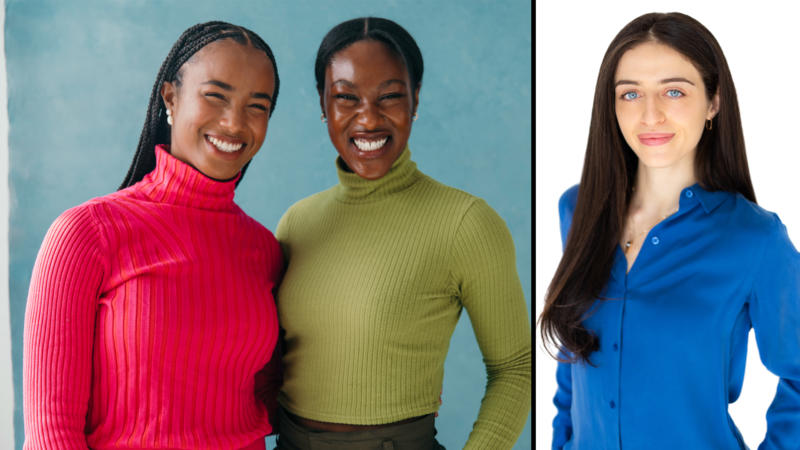In today’s day and age of social media, simply tagging someone in a post could potentially change the course of their careers. With viral sensations and challenges ruling over our timelines, it’s also become a trend for Black creators to not receive proper recognition as the originators for the majority of what blows up online. Meta’s Alexis Michelle Adjei, Cameryn Boyd, and Alexandra Zaoui made the active choice to step in and help the underrepresented group get their due credit.
“I feel like it was every day on these different platforms overall — on Instagram, of course — of seeing dances, designs, and songs, and [Black creators] would make these amazing viral trends,” Adjei shared with AfroTech. “It was beautiful to see everybody do their own takes on it, but when you went back to look at the originator they were often Black and brown folk who were really being the trendsetters. And they were getting lost in the story. When it would come to what would be displayed or what would be ‘most popular,’ it wasn’t the originators. So, that was our original inspiration of making sure that the people who were driving culture forward were also the people getting their proper roses and the accolades that they deserve.”
Through their shared passion for supporting creatives, the trio brainstormed together and created the idea of an Instagram tool that would include enhanced tags to make the tech giant more equitable for Black creators. In February 2021, Adjei, Boyd, and Zaoui took their project to compete in Meta’s Black Futures Hackathon.
Their fervor for crediting led them to win the Hackathon, which also led to working tirelessly to bring the idea and product to life. For a year, the small team put in the grind, received support from fellow Meta employees, and created a workstream to get the feature rolled out, which is now available to the public.
How The Tool Works
With the new enhanced tags, Instagram users can credit all of the people that are a part of creative collaborations including make-up artists, choreographers, creative directors, photographers, models, and more. Anything that you can select from the “Professional Creator” category can be auto-populated into the tool.
The team worked to extend the original feature so that a wider range of creatives could be properly represented on the platform. Its expansion was led by Zaoui, whose background in music further gave insight into how important crediting can be for creatives that are more so behind the scenes.
“We were inspired by the Recording Academy’s campaign titled ‘I Support Everyone Behind the Record’ and the brave songwriters who came together to demand their fair share of credit and compensation (in the form of publishing rights) by signing the pact,” Zaoui shared in a statement provided to AfroTech. “We wanted to see more songwriters, producers, album artwork makers, and other music creators start profiting from the fandom that artists have historically been the only recipients of.”
Advancing Black Creators
“I think ultimately what we want is not only for them to get the recognition and the attribution for their content that’s already being distributed, but eventually it’s the money,” Boyd shared. “It’s the monetary opportunities. It’s the career changing opportunities. I think what we’ve seen recently with creators being able to get all grand deals or get partnerships and really kickstart their careers on social media is that we want underrepresented creators to be a part of that. We don’t want them to be left behind. We want them to have those same opportunities.”
She continued: “So, as they’re creating this culture, we want people to know it’s them. And so they can grow their followings and get those same deals and get what comes with the visibility that we’re hoping that they get from this product.”
Setting A Trend For Social Platforms
The young masterminds behind the new Instagram tool aim for its recent launch to serve as an alert to other social media platforms to make attribution and crediting a priority.
The built-in features are representative of how they value creators and their art — especially those that are more disadvantaged. Therefore, it’s an essential need for them to build with the group in mind and ultimately everyone will benefit from the trickle effect. If Black creators matter, then online platforms should be accountable for supporting them to thrive. It’s the least they can do since they’re the ones helping bring traction to their platforms.
Editorial note: Portions of this interview have been edited and condensed for clarity.


